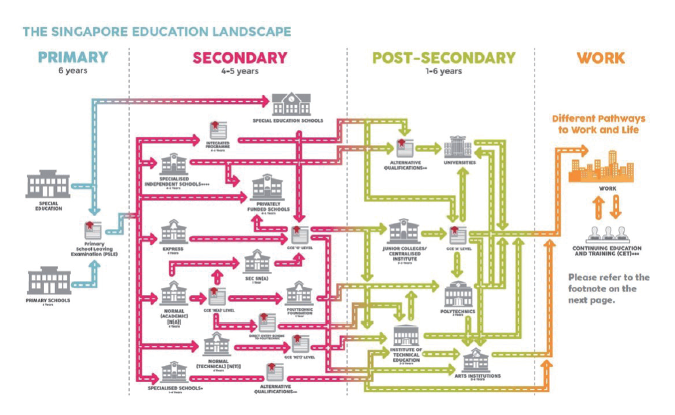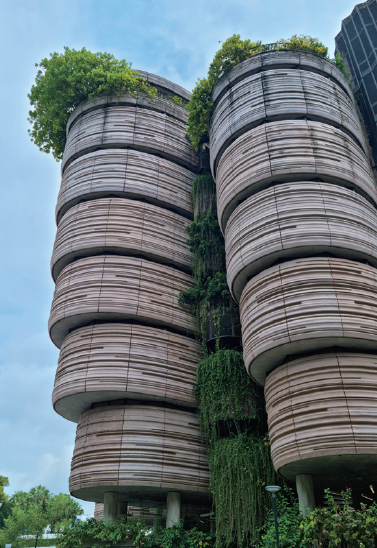Once again, the National University of Singapore (NUS) and Nanyang Technological University (NTU) ranked 1st and 2nd place in the QS Asia University Rankings of 2022. For more than a decade, the rigorous educational system of Singapore has been the center of attention. Accordingly, the Sungkyun Times (SKT) decided to visit Singapore over the summer. Through this article, Kingos can gain insight into the country’s education system as well as the steps Korea should take to become more successful in its education system.
A Small Country with Huge Potential, Singapore

The Republic of Singapore is a city-state located in Southeast Asia. Although Singapore has no significant natural resources, as of 2022, its gross domestic product (GDP) per capita is the second highest in the world. There is no doubt that education has played a vital role in the country’s economic success.
About Singapore’s Education System
College education in Singapore lasts three to four years, and most courses are discussion-based rather than lecture-based. Class participation is a large part of the grading criteria; students must actively participate by answering the professor’s questions and presenting their ideas during class. “Such requirements push students to review class material outside of school hours,” remarked Yu Da-hyun, a sophomore majoring in finance at NUS. Moreover, most college exams require students to write an essay for a given prompt by applying class material to real-life situations. “It is an advantage that I can receive direct feedback from the professor during class time,” said Yu Da-hyun when asked about her thoughts on Singapore’s current education system.
Roads to Take After Graduation
Most Singaporean students either enroll in graduate school or look for a job after graduating from college. The employment rate of students who graduate from universities in Singapore is remarkable; for instance, NTU’s employment rate within six months after graduation is nearly 90%. Such high employment levels are a result of programs offered by the university. Various workshops and recruitment presentations are hosted each week, and the school’s curriculum focuses on helping students develop practical skills. Also, schools tend to open internships through connections with companies, which allows students to search for an internship even during the summer of the first year. There are two types of student internships in Singapore: recruitment-linked internships and standard internships. Most students enroll in a recruitmentlinked internship program during their junior or senior years, so a gap between graduation and employment is not common. On another note, as Singapore is the center of intermediary trade and finance, students can also enroll in various Master of Business Administration (MBA) programs after graduation. For example, Nanyang Business School, which is integrated into NTU, hosts a variety of programs, including the Nanyang Executive MBA (EMBA) program in collaboration with Shanghai Jiao Tong University in China.
Changes for Students’ Better Future
Students Leading the Class
Unlike the discussion-based classes in Singaporean colleges, most universities in Korea still stick to lecture-based courses. Here, the professor delivers content unilaterally to students. Also, most exams are composed of multiple-choice or short-answer questions with set answers. This system hinders students from applying class material to real-life situations. Hence, Korean universities should leap into discussion-based classes. According to the Journal of Lifelong Learning Society’s 2019 study based on a survey sample of 24 undergraduates, most students prefer courses in which professors and students communicate actively. Such a class method may become burdensome, but helps students understand the class material efficiently. These days, some Korean universities have started to show efforts for innovation by adopting new teaching methods such as “Flipped Learning.” The Flipped Classes of Sungkyunkwan University (SKKU) provide lectures through i-Campus in advance so that students can study the material before coming to class. During the class, students can focus on discussions or student-centered presentations. Thus, Flipped Learning stimulates the interaction between professors and students, allowing students to achieve high academic performance. This is because student evaluation focuses more on the process, not the outcome.
Designing Your Future as a Student
Most Korean students that attend undergraduate education usually start to make a career plan during their junior or senior years; this is far later than Singaporean students who go through this process during their first or second years. The delayed employment of Korean students is essentially the result of Korean universities’ curricula. Unlike overseas universities, which provide an array of practical concepts related to employment for lower grade students, first and second-year students in Korea focus on theoretical concepts. In addition, many students repeatedly ask for a temporary leave of absence from school for fear of starting a social life. Such diversions from reality produce a significantly impactful gap between graduation and employment. In order to prevent any further delays, the school should actively aid students in developing their future plans. At SKKU, the Career Development Center notifies the student body of various information. However, the information provided is primarily employment-related, prohibiting students from learning more about specific career paths in their majors. Therefore, universities should diversify career lecture categories per department and inform students more frequently on paths other than employment, such as graduate schools and MBAs. This way, students will have more time to think about their future, alleviating their burden of graduation and employment.

Although Korea’s education system is renowned for producing outstanding talents, there are still areas to be developed in undergraduate education. By consulting curricula from other foreign universities, Korea will be able to improve its education system much more than now. The SKT hopes that Kingos will be able to take part in such a development.
